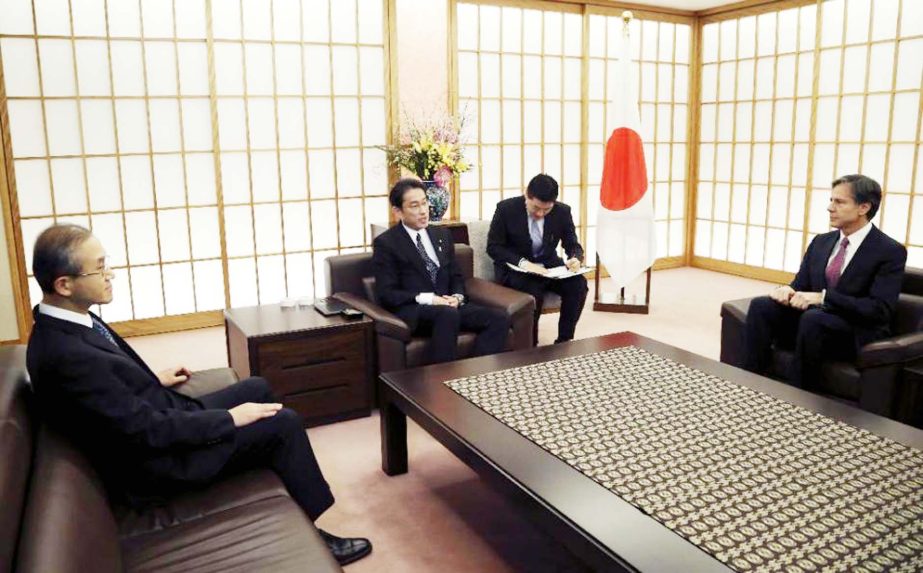
AP, Seoul :North Korea said it could stop its nuclear tests in exchange for signing a peace treaty with the US and a stop to annual military exercises between the US and South Korea.The North’s statement carried by the state media late Friday was a repeat of past offers that have been rejected by the US, which wants Pyongyang to commit to a complete abandonment of nuclear weapons.An unnamed spokesman of the North’s Foreign Ministry called the purported hydrogen bomb test on Jan. 6 a justifiable move to ensure its survival against external threats.”In response to the US continuously invading our sovereignty and making threatening provocations, we will acquire ourselves with all possible nuclear attack and nuclear retaliation abilities, but will not thoughtlessly use our nuclear weapons ,” the official Korean Central News Agency quoted the spokesman as saying.The spokesman also called the South’s decision to restart anti-Pyongyang propaganda broadcasts along their tense border an “odd” provocation.The North is extremely sensitive to outside criticism of the authoritarian leadership of Kim Jong Un and has been retaliating to Seoul’s loudspeaker campaigns by flying thousands of propaganda leaflets across the border. Earlier in the week, South Korean troops fired 20 machine gun warning shots after a North Korean drone briefly crossed the border.The North’s H-bomb claims have been met with widespread condemnation and suspicion, but also questions on how to stop the country’s growing nuclear threat.The Korean Peninsula remains technically at war because the 1950-53 conflict ended in an armistice, not a peace treaty.Meanwhile, senior diplomats from the US, Japan and South Korea concurred Saturday on the need for a strong response in the U.N. Security Council to North Korea’s recent nuclear test.US Assistant Secretary of State Antony Blinken and his Japanese and South Korean counterparts said Saturday that a failure to send a clear message would risk further provocations by Pyongyang.”The failure to take significant measures now almost guarantees North Korea will continue to repeat these moves,” Blinken said. “It’s the opposite of what we seek in the region.”

